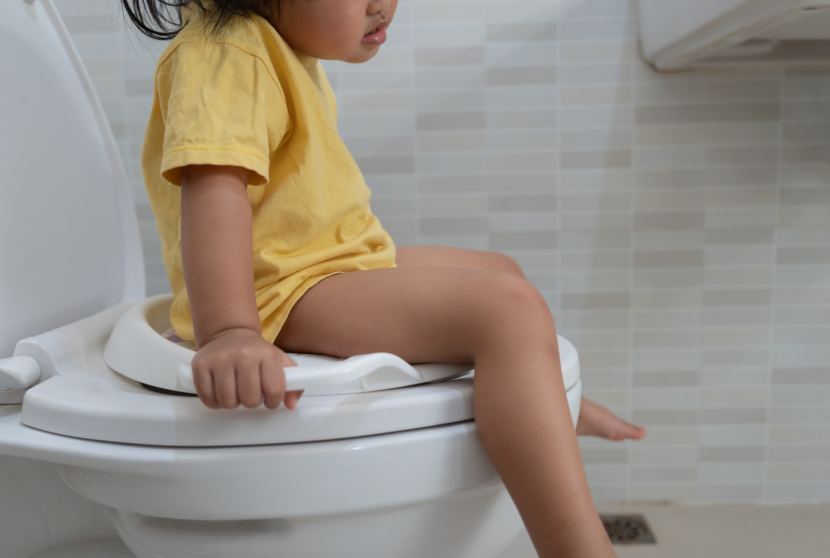Constipation in children is a common yet distressing issue that can make both parents and kids feel uneasy. It’s more than just missing a bowel movement for a day or two—it can cause discomfort, crankiness, and even abdominal pain in little ones. Fortunately, understanding the root causes, spotting the symptoms early, and offering gentle, natural relief can help your child feel better fast.
Let’s break it down: What causes constipation in kids? How can you tell when it’s a problem? And what are the safest, most natural ways to ease their discomfort?
What Is Constipation in Children?
Constipation in children is usually defined as having fewer than three bowel movements per week, stools that are hard, dry, or painful to pass, or a child who appears to be straining or withholding stool due to discomfort.
Occasional constipation is common, especially during toilet training or changes in routine. However, when it becomes persistent or painful, it needs attention.
Common Causes of Constipation in Kids
Several factors can contribute to constipation in children, including:
1. Low-Fiber Diet
Kids who eat a lot of processed foods, dairy, or meat but not enough fruits, vegetables, and whole grains may experience slower digestion.
2. Inadequate Fluid Intake
Not drinking enough water or fluids can make stools hard and dry, making them more difficult to pass.
3. Withholding Stool
Some children ignore the urge to go due to fear of pain, embarrassment, or not wanting to take a break from play.
4. Toilet Training Stress
Constipation can arise during potty training, especially if a child feels pressured or has a negative bathroom experience.
5. Changes in Routine
Travel, illness, new school environments, or stress at home can disrupt bowel habits.
Signs and Symptoms to Watch For
It’s not always easy to tell when a child is constipated. These are some signs to look for:
- Hard, dry, or pellet-like stools
- Less frequent bowel movements (fewer than 3 per week)
- Straining or crying during bowel movements
- Belly pain or bloating
- Poor appetite or crankiness
- Soiling (leakage of liquid stool) in toilet-trained children
- Avoiding the bathroom or hiding during bowel urges
- If these symptoms last more than two weeks, consult a pediatrician.
Natural Relief for Constipation in Children
Before turning to medications, try these gentle, natural remedies to relieve constipation safely at home:
1. Increase Fiber Intake
Offer more high-fiber foods like:
- Fruits: Apples, pears (with skin), bananas, prunes
- Vegetables: Broccoli, peas, carrots
- Whole grains: Oats, brown rice, whole-grain bread
- Legumes: Lentils, beans
2. Hydration Is Key
Encourage your child to drink plenty of water throughout the day. Warm fluids, like clear soups or herbal teas (such as fennel or chamomile), may also help.
3. Encourage Physical Activity
Active children have more regular bowel movements. Let them run, jump, and play outdoors daily.
4. Establish a Bathroom Routine
Create a calm, regular toilet time—preferably after meals when the “gastrocolic reflex” is active. Use a footstool to support their feet while sitting on the toilet.
5. Massage the Belly
A gentle abdominal massage, using clockwise strokes, can stimulate bowel movement. Use warm coconut or castor oil for added comfort.
6. Prune Juice or Warm Water with Lemon
Natural remedies like prune juice, pear juice, or a small glass of warm water with lemon in the morning can work wonders.
7. Avoid Excessive Dairy
Too much milk or cheese can slow digestion. Try cutting back if your child consumes large amounts.
When to See a Doctor
You should contact your pediatrician if your child’s constipation lasts more than two weeks or if there are concerning symptoms such as blood in the stool, fever, vomiting, or severe abdominal pain. If home remedies aren’t effective, a doctor may suggest further tests or a temporary laxative under medical supervision to ensure safe and effective relief.
Final Thoughts: Comfort First, Always
Constipation can be frustrating, but it’s usually manageable with patience and natural approaches. By supporting your child with healthy foods, regular routines, and a comforting environment, you can make bowel movements less stressful and more regular.
Remember, every child is different—what works for one may not work for another. Don’t hesitate to seek medical guidance if needed.




